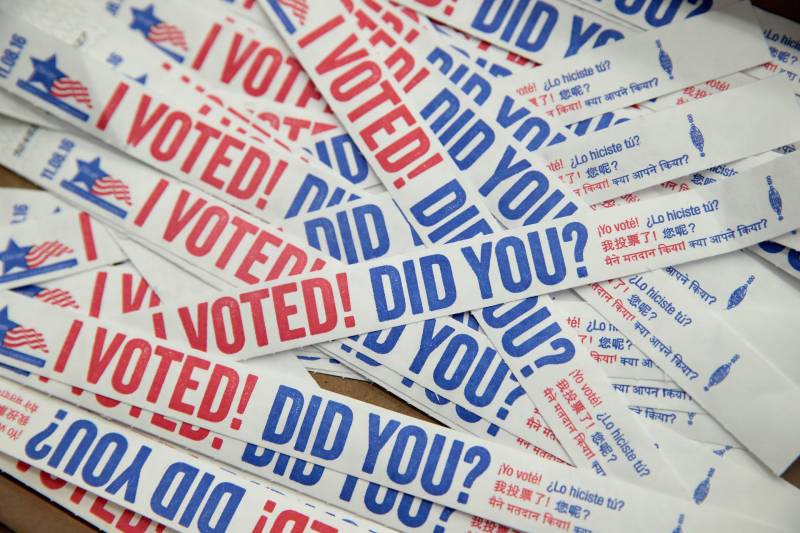Got your ballot? Still making up your mind on those California propositions? We’ve got you covered. This week, The California Report Magazine breaks down some of the statewide ballot measures with a few KQED reporters.
Proposition 15 Would Close a Corporate Tax Loophole. Here’s How It Got There in the First Place
Proposition 15 would raise commercial property taxes by amending Proposition 13, the landmark measure passed in 1978. Critics say Proposition 13 has been devastating to public schools. Scott Shafer, Senior Editor for KQED’s California Politics and Government Desk, explains the thinking behind Proposition 13, and how Proposition 15 would undo a major loophole in that ballot measure which has allowed corporations to keep their property taxes artificially low for decades.
Many Californians Hesitant to End State's Affirmative Action Ban, Poll Shows
In 1996, California voted to ban affirmative action. Now, voters will decide whether to end that ban with a new measure, Proposition 16. The vote comes as many Californians are taking to the streets demanding justice around questions of race. But Katie Orr, reporter with KQED's Politics and Government Desk, says recent polls show the measure is struggling.
Propositions 17 and 18 Could Change Who Votes in California
California has two propositions on the November ballot that could change who is allowed to vote in our state. Proposition 17 would restore voting rights to people on parole. Proposition 18 would allow 17-year-olds who turn 18 by the time of the general election to vote in the primary election. Guy Marzorati, producer and reporter with KQED's California Politics and Government Desk, breaks both measures down.
Proposition 22 Asks: Should App-Based Drivers Be Classified as Contractors Instead of Employees?
Proposition 22 would exempt some app-based gig economy companies from state labor laws. Uber, Lyft, Door Dash and other companies have spent over $188 million (and counting) in support of the measure, making it the most well-funded proposition in recent California history. KQED reporter Sam Harnett has reported on the gig economy since it first popped up, and he walks us through Proposition 22.
Kidney Failure Disproportionately Affects People of Color. Will Proposition 23 Improve Care?
Proposition 23 would require dialysis clinics in California to have a doctor on site at all times. The measure is getting a lot of attention from health groups that advocate for patients of color, because 57% of dialysis patients in the state are Black or Latinx. And those patients have the most to gain – or lose – from Proposition 23, depending how you interpret the policy. The California Report’s health correspondent, April Dembosky, explains.
